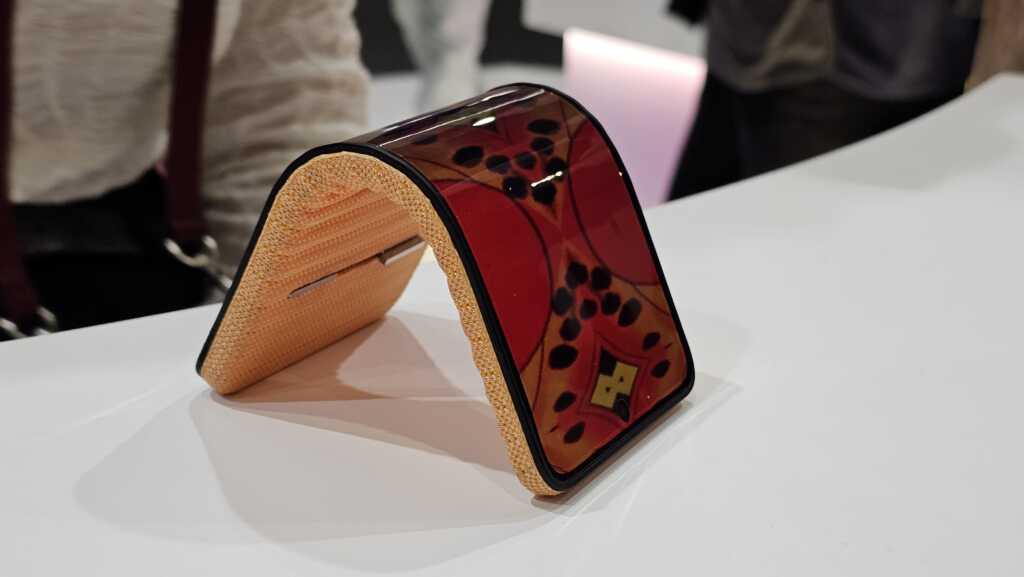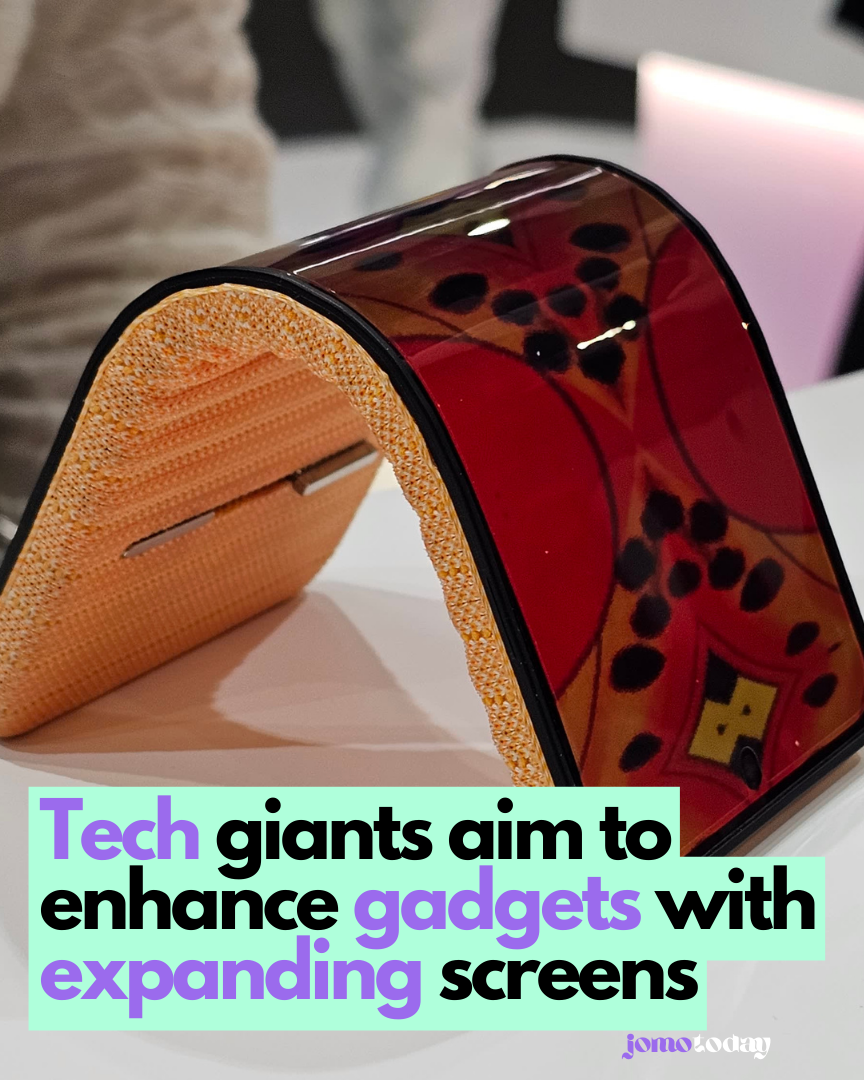Transparent displays, wrist-wrapping phones, and expandable screens are among the concept technologies unveiled this week by gadget manufacturers, aiming to distinguish themselves in a fiercely competitive hardware market.

At the Mobile World Congress in Barcelona, the world’s largest mobile trade show, major companies showcased unconventional screen technologies. While electronics firms have consistently enhanced features like battery life and cameras, recent focus has shifted towards display innovations, notably with the emergence of foldable phones.
Screens have gained prominence due to the increasing content on our devices. Many displays showcased at MWC aimed to generate excitement around products and compete with industry giants like Apple and Samsung.
Ben Wood, chief analyst at CCS Insight, noted, “Given Apple and Samsung’s significant market dominance, other companies are striving to distinguish their products, prompting a surge in unique designs such as wrist-worn phones, rollable screens, virtual 3D displays, and more.”
Tecno, a brand operating under the Chinese company Transsion and one of the prominent players in the global smartphone market, unveiled a prototype featuring an expandable screen.
By pressing a button located on the device’s top, the screen extends horizontally.
Dubbed the Tecno Phantom Ultimate, this device remains a concept for now, with no indication of its potential release for sale.
At MWC, Motorola unveiled a flexible phone capable of being bent into different configurations. One demonstrated application involved wrapping the phone around your wrist to complement attire. The smartphone’s interface adjusts according to its bending orientation.
Lenovo, the world’s leading PC manufacturer, unveiled a prototype of a laptop featuring a transparent display. Demonstrating its capabilities, the company showcased how the device’s cameras can detect objects positioned behind the screen, with pertinent information about the object subsequently displayed on the screen.
ZTE unveiled a second-generation tablet capable of projecting three-dimensional images without the need for glasses. Unlike traditional 3D displays, which usually require glasses, this innovative screen produces glasses-free 3D images. During CNBC’s review of the device, they noted that the quality of the 3D image varied depending on the viewing angle.
Read More: Samsung remains optimistic about AI-driven smartphones despite losing sales leadership to Apple.
Disclaimer:
This content is AI-generated using IFTTT AI Content Creator. While we strive for accuracy, it’s a tool for rapid updates. We’re committed to filtering information, not reproducing or endorsing misinformation. – Jomotoday for more information visit privacy policy






Leave a Comment